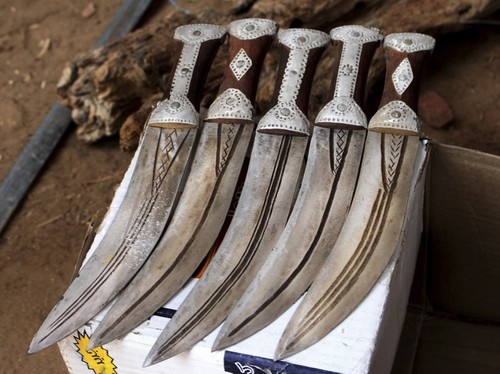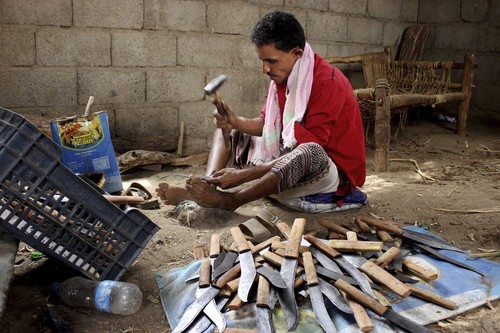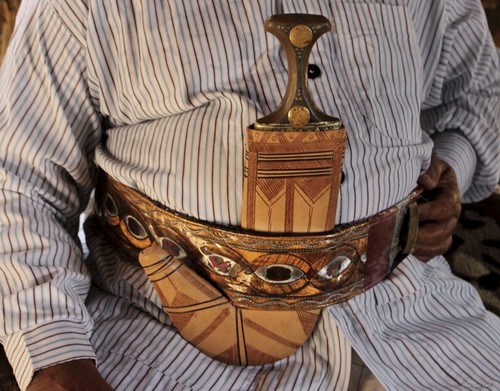© Turkuvaz Haberleşme ve Yayıncılık 2026
Sometimes, the raw material of Ali Ghomari's work comes screaming from the skies over Yemen.
Missiles fired by Saudi-led coalition jets rain down on militiamen and civilians alike, killing and maiming thousands. Children, farmers and others collect shrapnel from their farmlands, from dirt alleys in impoverished neighborhoods, and offer it for sale to Ghomari and other artisans.

From missiles, they do not make ploughshares. They make knives — jambiyya (jam-BEE-yah), the ornamental daggers Yemeni men wear for prestige and as a show of courage.
Once, they were made of imported steel, but high prices have forced craftsmen to use the refuse of war. One kilogram (2.2 pounds) of fragment steel costs about 500 rials (less than $1), half the price of Turkish steel.
Ghomari, who is in his 50s, said he learned his craft from his father, who inherited the skill from his ancestors. The entire Ghomari family of seven households works as blacksmiths in the northern city of Abs; they sit in huts constructed of cinderblocks or tree branches, forging glowing metal around open fires.

Ghomari said knives were once a profitable business. But the father of six lamented that the market has weakened as the war-ravaged economy has tanked, and fewer men have extra money to pay for jambiyya.
When he has the money, Ghomari sometimes buys the remains of trucks and cars destroyed in wrecks, bombings or airstrikes.
"Trucks make the best dagger because the steel is strong and special," he said.
The daggers have curved blades and are a part of traditional Yemeni attire — slipped into a decorated, hook-shaped sheath and tucked in vertically at the center of ornate belts if men are wearing robes, or placed in the top of a maawaz, a wrap-around male skirt. The blade is made of steel and the stronger the steel the more expensive the dagger. The shape of the hilt often refers to the city, region or tribe of the person carrying it, and the price also depends on whether the hilt is made of wood, buffalo horn or rhinoceros horn.
The more expensive the dagger, the more elevated the status of the man who wears it. Prices for new daggers range from $100 to $150. Old ones inherited from ancestors might be worth hundreds of thousands of dollars.
The war between Yemen's government and the Iran-backed Shiite Houthi rebels has been going on for nearly four years. The Saudi-led coalition of Sunni countries supported by the United States joined the fray in March 2015, launching a relentless air campaign with an arsenal made up mostly of U.S.-made missiles and other weaponry, providing plenty of metal for Ghomari and his family.

This is nothing new. During Yemen's 1962-1970 civil war, Egypt and Saudi Arabia backed opposite sides. Ghomari's father used Egyptian tank treads, artillery shells and rockets to make knives.
Today, Ghomari points to the anvil on which he beats missiles into daggers.
It is an empty mortar shell — from the 1960s.
